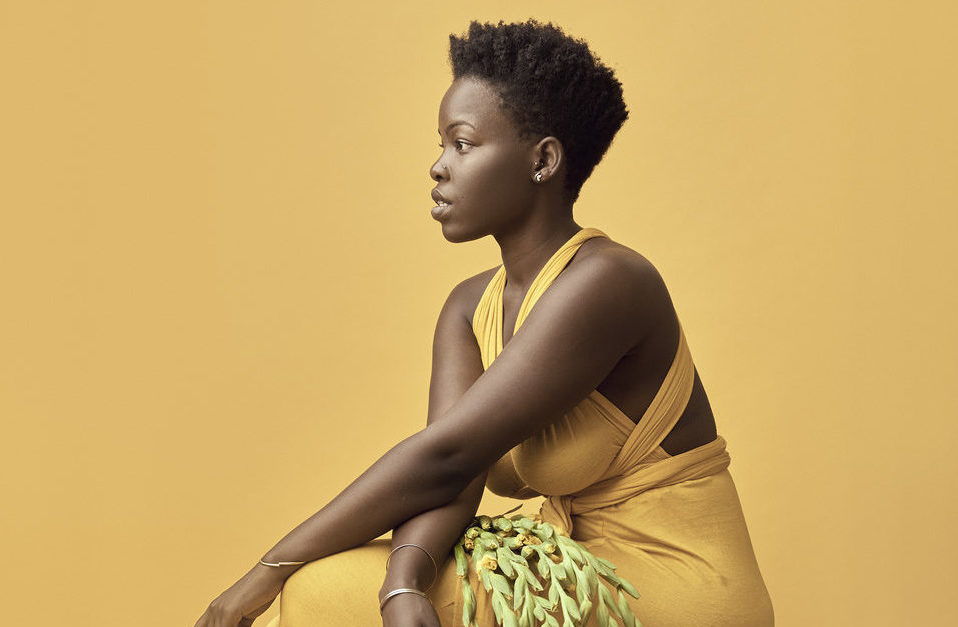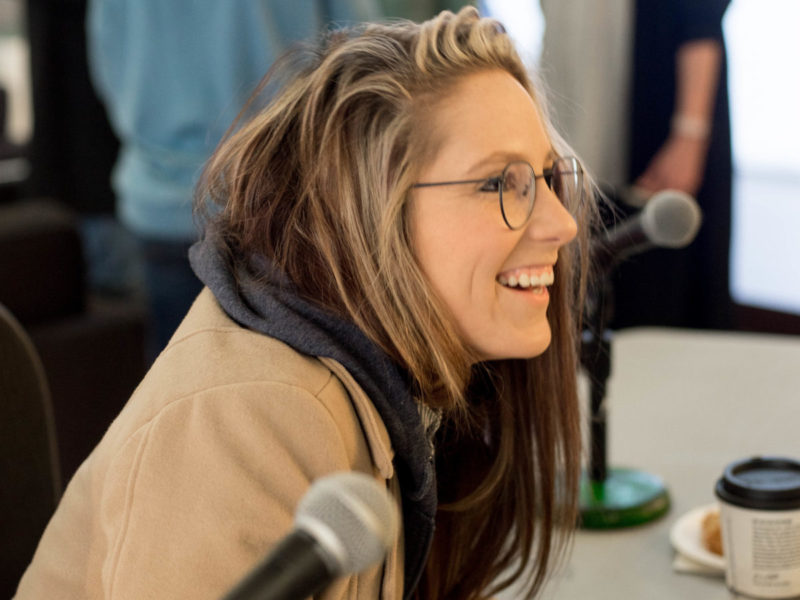Growth and Collaboration Take Center Stage in An Interview with Upile Chisala
Raised in Zomba, Malawi, Upile Chisala is a storyteller, sociologist, and activist. Her hope is to tell stories from the margins, and through her work, help others and herself come to terms with the past, celebrate the present, and confidently dream a beautiful future.
Her first collection, soft magic, was released in September of 2015. Among audiences, the collection was called captivating, inspirational, and tender. Her next collection, nectar was published in February of 2017, with a powerful focus on self-love and self-worth. Her newest collection, a fire like you, is available March 10.
In celebration of her upcoming collection, Chisala sat down with Read Poetry to give readers an inside look into her process—from finding inspiration and collaborating with visual artists to exploring and embracing her own growth over time.
Thea Voutiritsas: What are you currently reading?
Upile Chisala: I just finished reading Toni Morrison’s The Bluest Eye, which was breathtaking, sad and gorgeous all at once. Today I picked up a memoir by the lovely talented Christy Chilimigras called Things Even Gonzàlez Can’t Fix.
TV: What top three poets would you say have inspired you or your work?
UC: I was first drawn to poetry, especially blank verse poetry, by reading Pablo Neruda and then Sandra Cisneros then Mary Oliver then Lucille Clifton. Their work is a moving education of self. I love the works of my contemporaries Yrsa Daley-Ward, Alex Elle, Warsan Shire, Koleka Putuma, Pavana Reddy. I can’t name three, it’s just not fair.
TV: Tell us about your process. How do you turn an idea into a finished poem?
UC: I used to scribble tiny thoughts everywhere and I’d lose them before they ever got to be a poem. These days my Notes App and Google Docs are my closest friends. Hmmm, finding a place to keep the words is easier to explain than how the words come to me in the first place. But I think big writers are big readers and thinkers and listeners. You have to take in the world, and if it makes you feel a sorta way, write it down. That’s how poetry becomes.
TV: Did publishing your first book change your writing process? If so, how?
UC: Going from being this nonchalant self-published person who hardly took herself seriously to being published and having to answer to people has been an experience. I feel so honored to have my work supported, but it comes with the pressure to create and this fear of disappointing beyond yourself. So now, I’m intentional about my writing. I take myself and the process seriously. I make time for the words. Sometimes, you need that kick in the backside to wake up and seize all the opportunities life has in store for you.
TV: What transformations have you undergone as a writer between soft magic, nectar, and now a fire like you?
UC: Life happens in between books, subject matter changes—or how one approaches it changes. I self-published soft magic at 20. Five years later, I’m married and living in South Africa. Who I encounter, befriend, and care deeply for has shifted. My material is still very black, but the approach is different. Writing soft magic, I was hungry for self-love; in nectar, I was obsessed with what it means to find and use your voice as a black woman; and a fire like you explores a lot of the same themes with a bit more flair, honesty, and edge. As you read, I hope the growth is evident. Growth is a gorgeous thing.
TV: How do you stay inspired and keep things fresh?
UC: By living and reading and just talking. What touches our hearts changes from time to time, as what it means to be alive from wherever we stand changes. A few years ago, I was an immigrant in New Mexico and now I’m an immigrant in South Africa. Of course, that shift will affect what and how I write; and that’s only one way my life has changed. There’s new material and there’s old material we can approach with new eyes. I think as writers, we should stop being so afraid of irrelevance and instead focus on learning and relearning our art.
TV: A fire like you includes illustrations from artists Lulama Wolf and Neo Phage. How did you come into contact with these two artists and what made you want to work together?
UC: I love illustrations and was drawn to both Lulama and Neo’s work the minute I saw it. I complimented each of them to death until I finally decided to ask them to share the space that is a fire like you with me. We sat at my dining room table and talked and laughed and came to understand each other. This book carries bits of my heart and these two wonders gave those bits images and lines. It no longer makes sense for me not to bring along such talented black women when I create something. They gave me more than I gave them!
TV: A fire like you is separated into four parts: “wound,” “hunger,” “swoon,” and “sister.” Can you tell us a bit about how each section’s theme emerged?
UC: When I started writing and organizing nectar, I wanted it to be a journey from hurt to healing. I borrowed the same concept for a fire like you. “Wound” is the history of the hurt and the ugly. “Hunger” is the desire for better. “Swoon” is the possibility of what good love can look like. And “Sister” honors the women we lean on as we discover ourselves in and out of hurt, in and out of love, in celebration and in sorrow. Each theme emerged from a thorough inspection of my life—the hurting, wanting, loving and celebrating.
TV: Do you read your reviews?
UC: I’m a crier so I don’t read them often. My little Cancerian heart knows the importance of reviews and I encourage people to write them, but I just haven’t grown the strength to endure the less kind reviews. So, I keep away and let my readings determine if I’ve managed to move anyone with my words.
TV: What does literary success look like to you?
UC: Rest. It looks like arriving to a place where I don’t have to chase the next book and the next audience and the next check. Literary success for me looks like being someone I am proud of first. If I move anyone along the way, if someone knows my name or can recommend my work to a friend/ student/ loved one, then I think that’s my version of making it.




